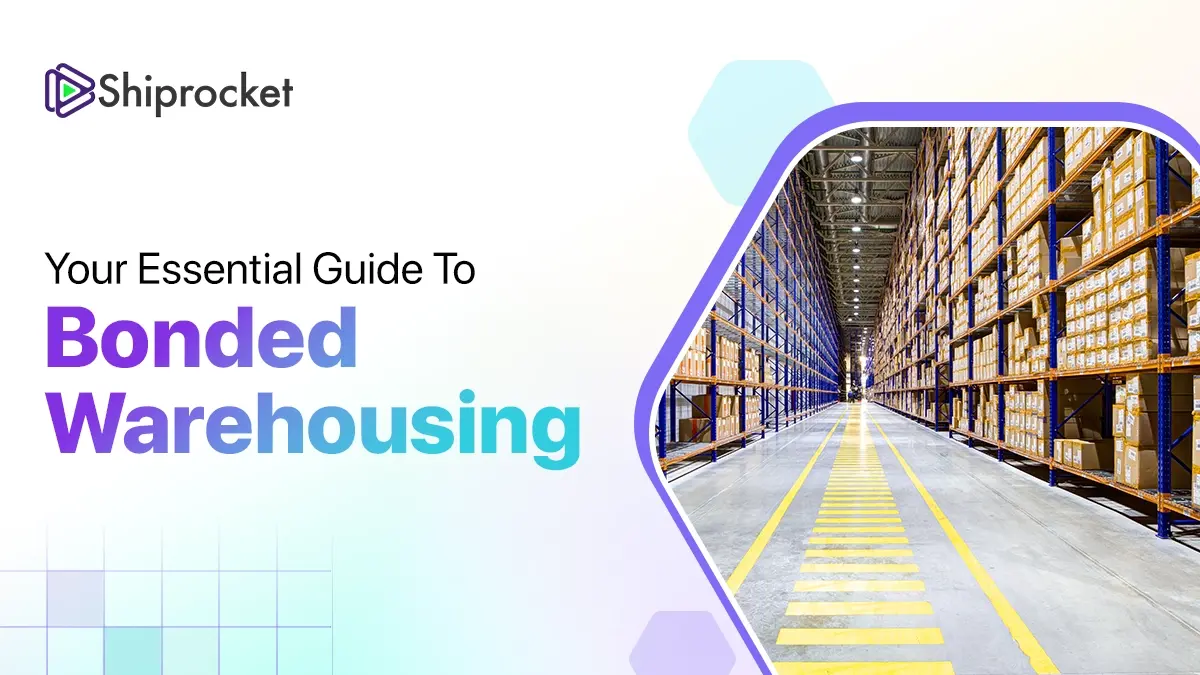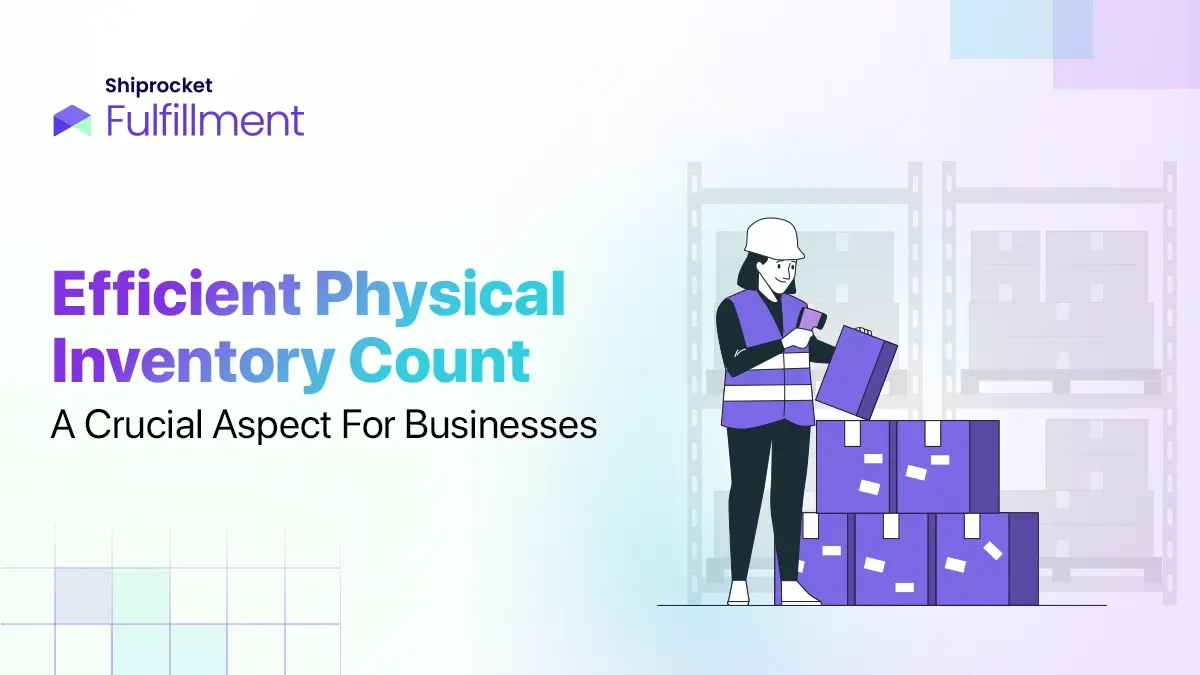There are a lot of steps and processes that go into the logistics operations. Managing them all and ensuring that work goes smoothly until the orders are fulfilled is a tremendous undertaking. From ordering, stocking, and tracking inventory to processing orders, picking, packing, and delivering them, all are part of the mighty logistics operations.
Logistics management is an ongoing process that requires continuous optimisation to save on costs and ensure that all consumer expectations are met. Without efficient and timely management, growing your business can be almost impossible.
Logistics management can relate to the entire eCommerce supply chain operations. Their main aim is to meet the demand and ensure consumers are completely satisfied with their buying experience. They strive to be precise and quick while optimising all their internal costs.
Throughout this article. You will understand the major concepts of logistic management, their objectives, and helpful tips to make your logistics operations more efficient.
Defining the Core Concepts and Scope
As mentioned before, logistics management is one of the most crucial elements of the supply chain process. It includes procurement, storage, and transporting of goods and finished products to the end consumer. It is a very delicate and comprehensive process aiming at maximum consumer satisfaction and higher organisational profits. When business issues arise, it comes down to managing logistics efficiently, including the most crucial activities like material procurement and acquisition, stock control, distribution management, transportation, order fulfillment, etc.
The most effective management strategies for logistics operations can help you gain greater financial success by maintaining the transportation and inventory of the goods. Thus, improving the overall supply chain workflows by investing in technology and fleet management systems is the simplest method to maximise gains.
Logistics management handles the three major areas of the eCommerce supply chain, including outbound, inbound, and reverse logistics. Listed below are some points which form part of the logistics management.
- It helps you procure, collect, and store inventory items across different distribution centers.
- Logistics management helps you restock and track items in stock as they move through different points across the supply chain network.
- Logistics management helps you make the supply chain process more efficient by adapting to changing technology and automation processes.
- It streamlines the process of picking and packing goods from warehouses and storage space.
- It ensures that all customer orders are picked, packed, and shipped on time without compromising their safety.
Objectives of Logistics Management
The objectives of your logistics management can vary based on how you set up your supply chain processes. However, here are some of the most common objectives of your logistic management:
- Enhance and prioritise supply chain efficiency
The key objective of your management is to ensure that they help you gain greater visibility into the supply chain and also fasten the outbound and inbound processes. Minimising operational costs and ensuring delivery processes within the specified timelines is crucial and advantageous. Managing warehouses, storage functionalities, and streamlining warehouse operations can impact any eCommerce business to control their expenses and enhance the overall efficiency of their operations.
- Warehouse and inventory management
Managing your inventory is a crucial portion of any smooth-running business. Knowing how much stock is useful and what levels of that item you must maintain to keep up with your demands without overstocking or understocking is crucial to determining the efficiency of your supply chain. Thus, inventory and warehouse management tend to curb the possibility of stockouts. Moreover, minimising inventory levels quickly minimises unnecessary expenses while improving your SCM workflows.
- Meeting consumer demands
Execution is the primary key to successful SCM operations. The core of logistics management is to ensure proper planning of transportation modes and inventory levels to meet the dynamic demands of its consumers. It ensures a smooth freight moving process and on-time delivery of both products and services.
Logistics management keeps its consumers informed and also enhances the complete shopping experience by giving them the necessary information throughout the delivery process. Evaluating the consumer’s wants is the simplest method to build synergic relationships and brand reputations for any business.
- Quick customer response
Consumer satisfaction is also one of the primary goals of logistics management. Solving all consumer queries and related issues in the smallest time frame efficiently and effectively enhances logistics operations. Thus, it plays a key role in accomplishing timely delivery. Companies prefer a reactive operation for every order as the logistics management provides all the relevant data to enhance the decision-making capability. It results in rapid response and precision in the operations.
- Eliminate the chances of product damage
An additional might have to be borne by the business when there are issues with logistic handling, absence of load unitising, incorrect packing, etc. Eliminating such additional costs can be done through effective logistics management. They must devise solutions to avoid such extra costs and ensure minimal damage. Hence, properly monitoring all product movements is key to completing the orders without additional costs.
- Minimise overall carbon footprint
An efficient and reliable logistic system tends to adopt new-age technologies for minimising carbon emissions. They tend to have a green goal strategy to ensure our plant is safe while also growing their business. The transportation industry is considered the primary cause for creating a vastly negative environmental impact due to their emissions. Hence, every modern logistics management must take strict measures to optimise routes, automate operations, and other similar strategies to create a sustainable logistics department.
Tips to Develop Effective Logistics Management Strategies
Organisations must enforce strong logistics management strategies to enhance efficiency while eliminating the risk of additional costs and also providing consistency in their quality and performance. Here are some of the most crucial tips to create an effective plan for logistics management:
- Lay out a well-planned strategy
A good plan requires the acquisition of goods, quick storage facilities, and proper delivery of finished products to the end consumer. Carrying out these processes successfully is vital as it prepares your organisation for unforeseen challenges and other risks. Contingency planning in the supply requires a clear flow of materials and supplies to ensure smooth workflows.
- Embracing automation for your workflows
With the rapid advancement in technology, automation plays a major role in data collection and analytics in real-time operations. Automating your process and other workflows that work simultaneously can streamline your processes and facilitate a well-integrated supply chain.
- Inventory and warehouse management
Enhancing storage facility operations will lead to minimal waste and minimise errors such as overstocking and understocking. Furthermore, the right approach is necessary for you to ensure that all the different points of the supply chain are provided with the necessary materials to ensure no roadblocks in the assembly processes. By adopting new technologies or partnering up with a 3PL partner, you can easily have an effective management strategy.
- Efficient transportation facilities
Transportation must be faster and more effective to ensure maximum consumer satisfaction. To ensure a consumer returns to you for products in the future, you must optimise your overall strategy and revamp your logistics management to ensure quick and timely deliveries. It gives you a competitive edge and gains more profits in the long run.
- Review and analyse your performance
Reviewing your performance will allow you to see where you have made mistakes and how to correct them to ensure that your supply chain runs efficiently. Continuous improvement is needed for your logistics management operations. They must evolve with time and continuously grow to keep up and ensure consumer satisfaction. Observing all your metrics and other KPIs can help you identify loopholes and create effective strategies to bridge the gaps.
Conclusion
Logistics management plays a key role in ensuring that the orders are fulfilled, and the consumers are satisfied. As your business grows, the complexity of your logistics management operations will tend to expand. A full-time commitment involving tedious and continuous improvements will be required to ensure a strong, agile, and harmonious supply chain. Creating effective logistics management operations with the right optimisations can give your business a competitive edge and maximise profits. A happy consumer always tends to come back, which is logistics management’s primary goal.
With logistics management, you achieve optimum utilisation of raw materials and ensure quick delivery to customers. You can reduce operational costs and increase business productivity by streamlining operations of goods and intelligent route planning.
There are four types of key areas of logistics management. These key areas include supply chain management, distribution and material movement, production management, and reverse logistics.
Logistics management can help you prevent delays in production by streamlining pickup and delivery of raw materials. It improves material handling and speeds up the transportation of goods. Logistics management also ensures the safety of goods, reducing shipping costs.




